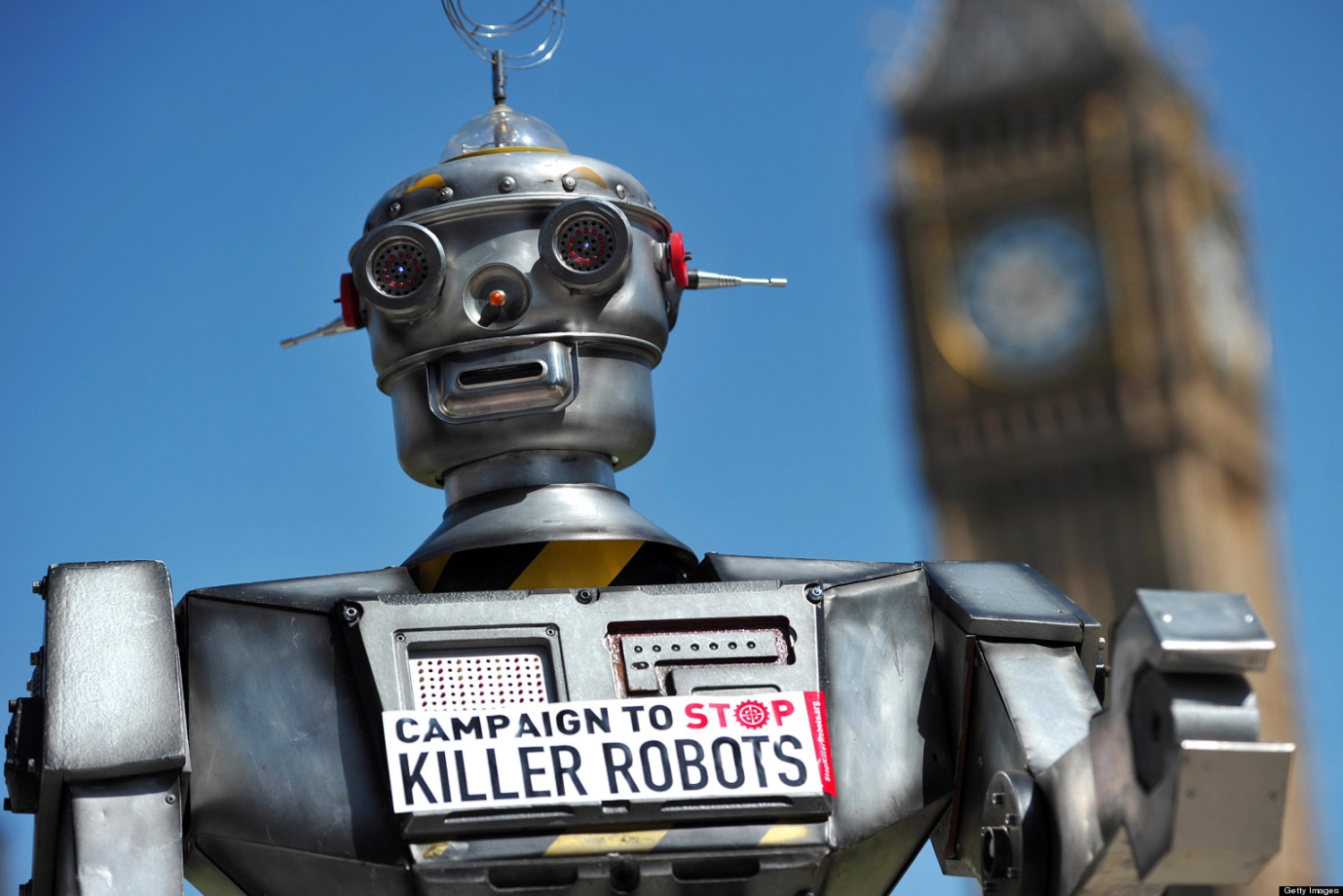Guest Post: KILLER ROBOTS AND THE ETHICS OF WAR IN THE 21th CENTURY
Written by Darlei Dall’Agnol[1]
I attended, recently, the course Drones, Robots and the Ethics of Armed Conflict in the 21st Century, at the Department for Continuing Education, Oxford University, which is, by the way, offering a wide range of interesting courses for 2015-6 (https://www.conted.ox.ac.uk/). Philosopher Alexander Leveringhaus, a Research Fellow at the Oxford Institute for Ethics, Law and Armed Conflict, spoke on “What, if anything, is wrong with Killer Robots?” and ex-military Wil Wilson, a former RAF Regiment Officer, who is now working as a consultant in Defence and Intelligence, was announced to talk on “Why should autonomous military machines act ethically?” changed his title, which I will comment on soon. The atmosphere of the course was very friendly and the discussions illuminating. In this post, I will simply reconstruct the main ideas presented by the main speakers and leave my impression in the end on this important issue. Read More »Guest Post: KILLER ROBOTS AND THE ETHICS OF WAR IN THE 21th CENTURY


